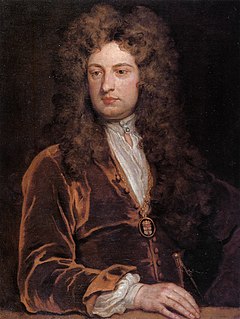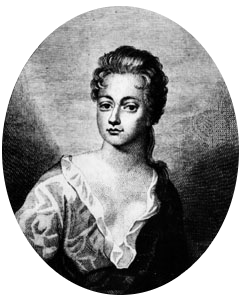Cibber is a surname. Notable people with the surname include:
- Caius Gabriel Cibber, Danish sculptor; father of Colley Cibber
- Charlotte Cibber, English actress, playwright, novelist, autobiographer, and noted transvestite
- Colley Cibber, British actor, playwright, and Poet Laureate; father of Charlotte and Theophilus Cibber
- Susannah Maria Cibber, English singer and actress; wife of Theophilus Cibber
- Theophilus Cibber, English actor, playwright and author

Caius Gabriel Cibber (1630–1700) was a Danish sculptor, who enjoyed great success in England, and was the father of the actor, author and poet laureate Colley Cibber. He was appointed "carver to the king's closet" by William III.

Colley Cibber was an English actor-manager, playwright and Poet Laureate. His colourful memoir Apology for the Life of Colley Cibber (1740) describes his life in a personal, anecdotal and even rambling style. He wrote 25 plays for his own company at Drury Lane, half of which were adapted from various sources, which led Robert Lowe and Alexander Pope, among others, to criticise his "miserable mutilation" of "crucified Molière [and] hapless Shakespeare". He regarded himself as first and foremost an actor and had great popular success in comical fop parts, while as a tragic actor he was persistent but much ridiculed. Cibber's brash, extroverted personality did not sit well with his contemporaries, and he was frequently accused of tasteless theatrical productions, shady business methods, and a social and political opportunism that was thought to have gained him the laureateship over far better poets. He rose to ignominious fame when he became the chief target, the head Dunce, of Alexander Pope's satirical poem The Dunciad.

Susannah Maria Cibber, also known as Susannah Maria Arne, was a celebrated English singer and actress and the sister of the composer Thomas Arne. Although she began her career as a soprano, her voice lowered in the early part of her career to that of a true contralto. She was universally admired for her ability to move her audiences emotionally both as an actress and vocalist. Possessing a sweet, expressive, and agile singing voice with a wide vocal range, Cibber was an immensely popular singer, even if at times her voice was criticized for a lack of polished technique. Charles Burney wrote of her singing that "by a natural pathos, and perfect conception of the words, she often penetrated the heart, when others, with infinitely greater voice and skill, could only reach the ear." Cibber was particularly admired by Handel, who wrote numerous parts especially for her including the contralto arias in his 1741 oratorio Messiah, the role of Micah in Samson, the role of Lichas in Hercules and the role of David in Saul among others. In the mid-1730s she began appearing in plays in addition to appearing in operas and oratorios. She became the greatest dramatic actress of the eighteenth-century London stage and at the time of her death was the highest-paid actress in England.
| This page lists people with the surname Cibber. If an internal link intending to refer to a specific person led you to this page, you may wish to change that link by adding the person's given name(s) to the link. |










